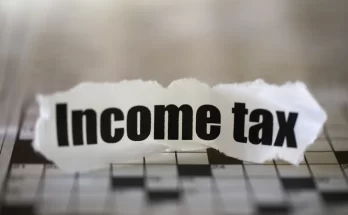Rwanda Introduces Sweeping Tax Reforms for 2025/26: Businesses Urged to Prioritize Compliance. In a bold fiscal move aligned with Rwanda’s 2025/2026 National Budget, the Ministry of Finance and Economic Planning, in collaboration with the Rwanda Revenue Authority (RRA), has introduced a series of wide-ranging tax reforms.
These changes, enacted on May 27, 2025, reflect the country’s renewed strategy to improve domestic revenue mobilization while supporting key national goals such as environmental sustainability, energy security, and tourism development.
New Tax Laws Targeting Priority Sectors
Among the most significant changes is the enactment of multiple new laws affecting various taxpayer categories.
- Law No. 009/2025 revises Rwanda’s Value Added Tax (VAT) system, updating provisions from Law No. 049/2023.
- Law No. 010/2025 introduces an environmental tax on goods packaged in plastic, reinforcing the government’s commitment to a green economy.
- Law No. 011/2025 adjusts the excise duty regime for specific products such as alcohol and tobacco—goods frequently associated with public health concerns.
- Law No. 012/2025 imposes strategic reserve levies on petrol and diesel, aimed at ensuring national energy security.
- Law No. 015/2025 introduces a new tourism tax, specifically targeting accommodation services.
In addition, Ministerial Order No. 003/25/10/TC of 16 April 2025 establishes new vehicle registration fees, affecting both imported and locally registered vehicles.
Implications for Businesses and Consumers
According to tax professionals monitoring these developments, these laws will particularly impact manufacturers, importers, fuel distributors, tourism operators, and consumers of excisable goods.
While the reforms are expected to increase government revenue, experts caution that unawareness or misinterpretation of the laws could lead to costly non-compliance.
“The penalties for failing to comply with tax obligations are not only steep but could also result in criminal prosecution in cases of evasion,” a Kigali-based tax consultant noted.
South Africa Introduces Express Tax Filing Tool Ahead of 2025 Season
Tax Compliance: Now a Strategic Business Imperative
Rwandan tax authorities are urging businesses to adopt a proactive approach toward compliance. This includes conducting regular tax health checks, reviewing operational structures, and keeping up-to-date with legislative changes.
The Tax Procedures Law allows penalties of up to 100% of the principal tax due, underlining the financial risks of neglecting tax responsibilities.
Tax experts recommend that tax compliance be elevated to board-level priority, with companies establishing internal tax committees—similar to audit or human resources committees—to oversee tax risks and obligations.
Financial auditors have also been advised not to issue audit opinions unless a tax health check has been conducted as part of the engagement.
Call to Action: Pay What Is Legally Required
As Rwanda rolls out these tax changes, the central message from RRA and the Ministry of Finance is clear: businesses must neither underpay nor overpay their tax obligations.
Instead, the focus should be on fulfilling exact legal requirements—nothing less, nothing more.
By doing so, enterprises not only avoid penalties but also contribute responsibly to Rwanda’s broader development goals.
Conclusion
The 2025/26 fiscal year marks a new chapter in Rwanda’s tax policy evolution. Businesses and individuals operating in the country are encouraged to seek professional tax advice, enhance record-keeping systems, and make compliance an integral part of their corporate governance structures.
In this new tax environment, precision is key: pay the right tax, at the right time, as the law demands.




